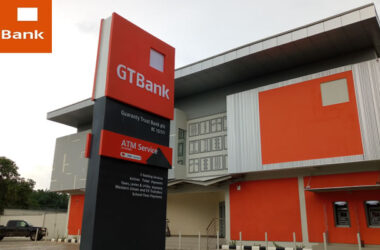The Nigerian National Petroleum Company Limited (NNPCL) earned a total of N336.37 billion from crude oil sales in the first quarter of 2025, with Dangote Petroleum Refinery purchasing over N107 billion worth of crude during the period.
Internal company records submitted at the Federation Account Allocation Committee (FAAC) meetings revealed the details of the transactions.
Between January and March 2025, NNPCL supplied 915,821 barrels of crude to the Dangote refinery. These barrels were lifted in seven cargoes, sourced from the Okwuibome oil field operated by Sterling Oil Exploration & Energy Production Company (SEEPCO) under a Production Sharing Contract (PSC). The sales were carried out using unit prices ranging from $74.87 to $80.34 per barrel, with exchange rates set between N1,501.22 and N1,562.91 per dollar, as advised by the African Export-Import Bank (Afreximbank).
“The Dangote domestic lifting is payable in naira based on Afrexim Bank advised exchange rate,” one document stated.
This naira-based crude supply is part of the Federal Government’s plan to support local refining, reduce pressure on foreign exchange, and stabilize fuel prices. The initiative began on October 1, 2024, after being approved by the Federal Executive Council in July 2024, and allows NNPCL to sell crude to local refineries, including Dangote’s, in naira instead of dollars.
Although the naira-for-crude policy faced a brief suspension in March 2025, it was later reinstated. A government technical committee involving the Ministry of Finance, NNPCL, and Dangote Refinery was tasked with reviewing pricing methods and ensuring smooth execution of the policy going forward.
The policy has already impacted local fuel prices, with the Dangote Refinery cutting the price of petrol to N835 per litre—its third reduction in less than two months.
However, in March 2025, the refinery briefly halted selling petroleum products in naira. It explained the decision was necessary to “avoid a mismatch between our sales proceeds and our crude oil purchase obligations, which are currently denominated in US dollars.”
Despite these issues, the Federal Government reiterated that the policy is not temporary, calling it a “key policy directive designed to support sustainable local refining.”
Beyond local sales, NNPCL also exported crude oil to international buyers during the same period. It earned about N228.93 billion from the export of 1.95 million barrels to foreign refiners. These shipments included Egina, Erha, and Forcados Blend crude grades and were sold under PSC agreements with international partners like Total, ExxonMobil, and Pan Ocean.
The four major export transactions between December 2024 and February 2025 generated $151.44 million in foreign revenue, converted at exchange rates between N1,477.22 and N1,535.82 per dollar, as provided by the Central Bank of Nigeria.
In contrast, higher exchange rates were applied to Dangote Refinery sales, which some say reflects the volatility of the naira and the challenge NNPCL faces in balancing domestic needs with its foreign exchange goals.
Meanwhile, the Okwuibome oil field, which supplied crude to Dangote, has also drawn attention for non-compliance with labour laws. SEEPCO, the operator of the field and a subsidiary of the Sandesara Group, is under scrutiny by the Nigerian Content Development and Monitoring Board (NCDMB) for alleged mistreatment of workers and abuse of expatriate quotas.
The Petroleum and Natural Gas Senior Staff Association of Nigeria (PENGASSAN) staged a protest in March, accusing SEEPCO of discriminating against local workers. The NCDMB said it is actively investigating the complaints and may take disciplinary actions if the violations are confirmed.









